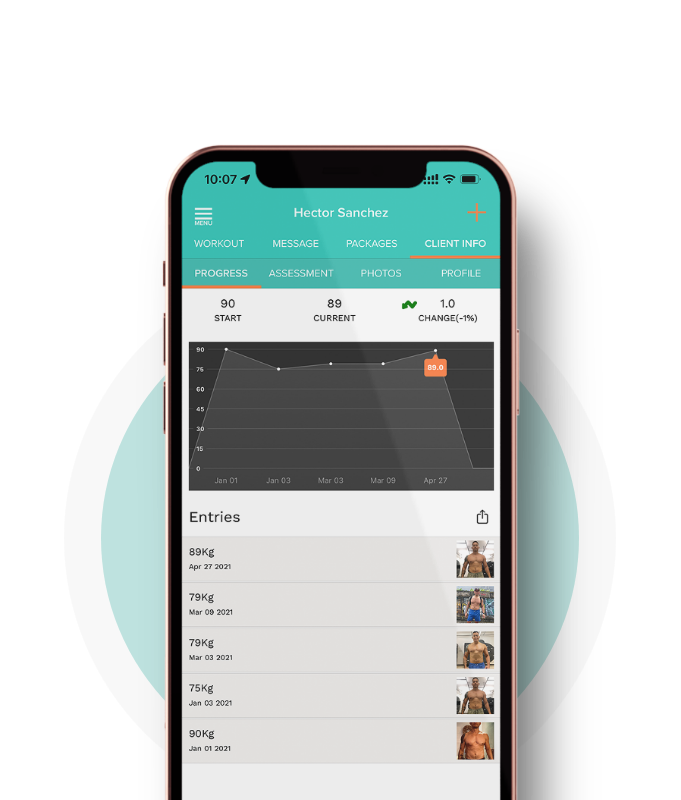The Importance of Having a Business Plan as a Personal Trainer
As a personal trainer with over 15 years of experience, I have seen firsthand the importance of having a well-planned business strategy. With a business plan in place, personal trainers can ensure that they are building their brand and growing their client base in a sustainable and effective way. In this article, I will share my insights on why personal trainers need a business plan and how they can go about creating one.
Why Personal Trainers Need a Business Plan
When I first started out as a personal trainer, I didn't have a business plan. I was just excited to get started and eager to help people reach their fitness goals. However, as I started to build my client base and work with more and more people, I realized that I needed a more organized approach to managing my business.
A business plan helps personal trainers to:
- Set Clear Goals
A business plan helps personal trainers to set clear goals for their business. This includes goals for client acquisition, revenue, marketing, and branding. By setting these goals and tracking progress over time, personal trainers can ensure that they are on track to achieving their long-term vision for their business.
- Identify Target Clients
A business plan also helps personal trainers to identify their target clients. By identifying the types of people they want to work with, personal trainers can tailor their marketing and branding efforts to reach those individuals. This can help to attract more of the right clients and build a strong client base over time.
- Develop Marketing Strategies
A business plan also helps personal trainers to develop effective marketing strategies. By identifying the most effective marketing channels and tactics for their business, personal trainers can reach more potential clients and grow their client base faster. This can include strategies like social media marketing, email marketing, paid advertising, and more.
- Manage Finances
A business plan also helps personal trainers to manage their finances effectively. By setting revenue goals and tracking expenses, personal trainers can ensure that they are earning a sustainable income and not overspending on business expenses. This can help to ensure long-term success and growth for the business.
How to Create a Business Plan
Now that we have established why personal trainers need a business plan, let's talk about how to create one. Here are the steps I recommend for creating a comprehensive and effective business plan for your personal training business.
- Define Your Vision
The first step in creating a business plan is to define your vision for your business. What do you want to achieve in the long term? What is your ultimate goal for your business? This could include things like earning a certain amount of revenue, working with a certain number of clients, or building a strong brand and reputation.
- Identify Your Target Clients
The next step is to identify your target clients. Who do you want to work with? What types of people are most likely to benefit from your services? This could include things like age, gender, fitness level, and more. By identifying your target clients, you can tailor your marketing efforts to reach those individuals and build a strong client base over time.
- Develop Your Marketing Plan
Once you have identified your target clients, it's time to develop your marketing plan. This should include a detailed strategy for how you will reach your target clients and attract them to your business. This could include strategies like social media marketing, email marketing, paid advertising, and more. By developing a comprehensive marketing plan, you can ensure that you are reaching the right people and growing your client base effectively.
- Set Revenue Goals
It's also important to set revenue goals for your business. This could include things like the total amount of revenue you want to earn in a year, or the average revenue per client. By setting these goals and tracking progress over time, you can ensure that you are earning a sustainable income and building a profitable business.
- Manage Expenses
In addition to setting revenue goals, it's important to manage expenses effectively. This includes tracking all business expenses and ensuring that you are not overspending on things like equipment, rent, or marketing. By managing expenses effectively, you can ensure that you are earning a healthy profit and growing your business in a sustainable way.
- Monitor Progress
Finally, it's important to monitor progress and adjust your business plan as needed. This includes regularly reviewing your revenue and expense reports, tracking the success of your marketing efforts, and assessing your client base. By monitoring progress and making adjustments as needed, you can ensure that your business is always moving in the right direction.
Conclusion
As a personal trainer, having a well-planned business strategy is essential for long-term success. By creating a comprehensive business plan, personal trainers can set clear goals, identify target clients, develop effective marketing strategies, manage finances, and monitor progress over time. With a solid business plan in place, personal trainers can build a strong brand, attract more clients, and grow their business in a sustainable and effective way. As someone who has worked in NYC's top gyms, trained thousands of people of all walks of life, earned over 100k in a single year, and run The Training Notebook app for 10 years, I highly recommend that all personal trainers take the time to create a business plan that works for them.
By: Hector Sanchez




